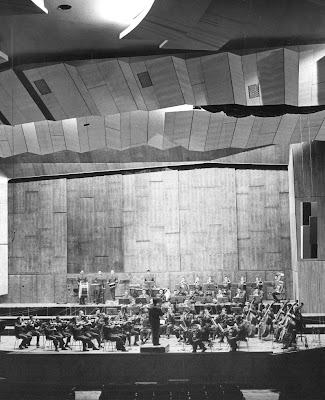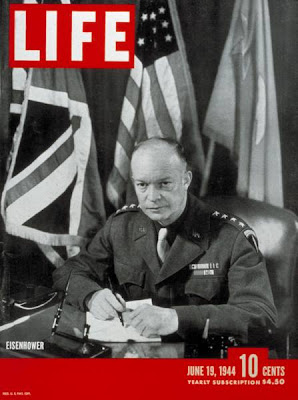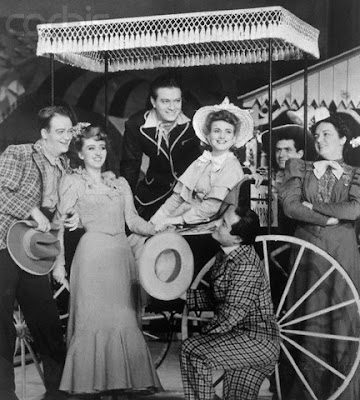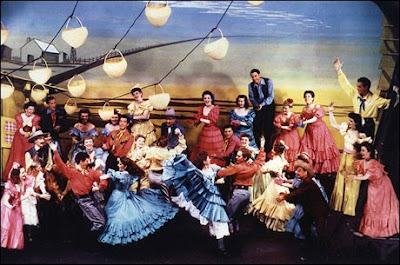I have never paid much attention to the work of William Inge.
Inge wrote plot-driven vehicles in which lower-middle-class characters from the Midwest and Southwest find themselves in various personal and family crises. The crises are largely uninteresting and carry no universal message. The appeal of Inge’s characters is limited, which makes the appeal of Inge’s dramas limited.
Inge’s characters are, above all, plainspoken. They speak an earnest, flat, featureless prose, the kind of prose high school math teachers from Western Nebraska must have used in the 1940s. I have always wondered whether Inge deliberately avoided a more poetic, rhetorical writing style because he associated unadorned plainness with truth and honesty.
And the language in Inge’s most-produced plays—“Come Back, Little Sheba”, “Picnic”, “Bus Stop” and “The Dark At The Top Of The Stairs”, to which must be added his famous screenplay for “Splendor In The Grass”—is indeed exceedingly plain. His characters utter mundane thoughts in mundane prose; the playwright has matched the dullness of his characters with language of equal dullness, as if he had set out to become the anti-Tennessee Williams (with whom Inge was on friendly terms).
For years, I assumed it was Inge’s dishwater-dull prose as well as his inability to conceal plot gears that kept his works off the stage.
However, having seen three productions of Inge plays in the last couple of years, I now believe a third strike against Inge’s plays is perhaps even more fatal to their long-term durability than the first two deficiencies I have cited: the plays are melodramas drowning in self-pity.
The slovenly wife and alcoholic husband in “Come Back, Little Sheba”; the spinsters of “Picnic”; the motley assortment of vagrants that inhabit “Bus Stop”; the long-suffering wife and unappreciated husband in “The Dark At The Top Of The Stairs”; the young woman who suffers a nervous breakdown in “Splendor In The Grass”: all are exemplars of an unattractive self-pity that was a recurrent theme of 1950s American drama. The plays of Arthur Miller, Clifford Odets and Williams exhibit the same mawkish self-pity that mars the work of Inge—and, as a result, the plays are insufferable, even flesh-crawling. Only Williams’s work from the period has survived, but only because the poetry that flowed from Williams’s pen helped to offset the maudlin nature of much of his work. Other than one or two plays by Williams, American drama of the 1950s is a wasteland.
And yet a mini-revival of Inge seems to be underway. Performances of his plays are popping up all over the place.
In
April 2009, Joshua and I attended a performance of “Picnic” at Stoneham Theatre in Stoneham, Massachusetts. We had attended the performance largely out of curiosity—we had wanted to know whether “Picnic” was stage-worthy.
In a good production, “Picnic” remains stage-worthy, but barely so. “Picnic” is a faded remnant of American commercial theater of the 1950s, undistinguished, formulaic, withered—and yet enjoyable as historic artifact if staged with vividness and imagination and style.
In
September 2010, Josh and I attended a performance of “Bus Stop” at Huntington Theatre Company in Boston. We had, once again, attended the performance largely out of curiosity.
“Bus Stop” is not as fine a play as “Picnic”. “Bus Stop” lacks the sense of community that is one of the most attractive features of “Picnic”. Further, the characters in “Bus Stop” lack the individuality of the characters in “Picnic”. Finally, “Bus Stop” is a more schematic play than “Picnic”. In “Bus Stop”, eight diverse characters are stuck overnight in a snowstorm in Kansas—and the stale device of eight strangers trapped together for a prolonged period is best left to crime melodrama, whether the Agatha Christie or “The Desperate Hours” variety. (Indeed, because of the corrupt crime genre on which Inge based his play, the so-called “captivity” drama, the viewer of “Bus Stop” is almost disappointed that there is no murder to be solved at the play’s conclusion.)
Unlike “Picnic”, “Bus Stop” is unworthy of revival. The play more or less rots on the stage. At the end of “Bus Stop”, the characters are in the very same situation as the characters in “Picnic”—they are left to carry on with their dull, vapid lives—yet, unlike “Picnic”, there is no sense that the characters in “Bus Stop” have experienced events worthy of their time and attention, let alone the audience’s. The characters in “Bus Stop” have been thrust together for a few hours, but nothing comes of the enforced gathering.
When Josh and I attended a performance of “Bus Stop” exactly a year ago, we never expected ever again to sit through the play.
However, one of the Minneapolis repertory companies, Theatre In The Round, recently opened a production of “Bus Stop”—and, on Friday night, Josh and I, along with my middle brother and my parents, caught the Theatre In The Round production.
The only reason my parents were curious to see “Bus Stop” was because Josh and I had described the Boston production to them—and, their interest piqued, my parents had decided that they wanted to see the play if ever a Minneapolis production were mounted.
That my parents were serious about such intention became clear on Wednesday night, when at dinner they had asked my brother and Josh and me whether we wanted to see “Bus Stop” on Friday night.
I don’t think our reactions were very enthusiastic—until my father, offhand, threw in “We were thinking of eating at The Capital Grille”, which suddenly made the prospective evening much more enticing.
My brother looked at me and asked, “Will I be able to sit through it?”
“Yes” I answered. “As long as you don’t expect too much.”
The result: we signed ourselves up for an evening out.
The Minneapolis production of “Bus Stop” was not good. The Boston production had been much finer, with better direction, a superior cast, and exceptional stage design (the Boston “Bus Stop” had featured the finest stage design Josh and I had encountered in three years in Boston). In fact, Friday night’s “Bus Stop” was one of the weaker productions I have encountered at Theatre In The Round. My suspicion is that the local director did not realize what he was getting himself into until it was too late to back out of the project. I base my suspicion upon my observation that none of the cast members appeared to believe in the material; the cast walked through its roles without conviction, as if dutifully carrying out unrewarding assignments.
The Minneapolis production emphasized the comedy inherent in the play more than the Boston production, which had been more intense and more dramatic. The result was that “Bus Stop” came across as a gentler, funnier play—but not a better play—in Minneapolis. (Unsuccessful theater productions often settle for ruthlessly mining the material for potential comedy.)
We were able to sit through the manufactured plot contortions of Inge’s play without too much distress—although the small audience Friday night was uncomfortable throughout the performance, unable to decide whether it was observing a comedy or a drama. (I have been told, accurately or not, that Theatre In The Round’s “Bus Stop” has suffered from poor ticket sales—which in Minneapolis means that the production has suffered from poor word-of-mouth.)
The question remains: why are Inge’s plays now enjoying revival after decades of neglect?
My father contends that the answer is an easy one: audiences have tired of seeing the same handful of Williams plays over and over, and Inge’s inferior yet very-Williams-like plays offer a viable substitute.
My mother has a different answer. Inge plays, she says, are revived only by small theater companies looking for something neglected—and they are revived only for very limited runs. Attempts to revive Inge plays for extended runs at major venues, such as on Broadway or in London, have been artistic and commercial failures.
My mother noted that she was pleased to have seen “Bus Stop”. However, she remarked that Inge’s plays not only were very old-fashioned, even by the standards of the time, but that Inge did not develop as a playwright or as an artist. Inge’s first commercial success, “Come Back, Little Sheba”, and his final commercial success, “The Dark At The Top Of The Stairs”, evidence no artistic development whatsoever. All Inge plays are alike; they do not offer a wide range of incident, character or emotion. With time, my mother says, Inge’s plays are destined to disappear entirely.
My brother insisted that “Bus Stop” was a pure product of early television: everything was very on-the-surface and exceedingly obvious, with no room for subtlety or nuance. “It was like watching an old episode of some long-forgotten television series that was never a hit in the first place” was his final word.
Josh believes that the current spate of Inge revivals reflects current economic difficulties. Inge’s plays feature members of the lower-middle classes aspiring and struggling to move up the socio/economic ladder. What with a constrained economy permeating the short-term national outlook, theatergoers now find resonance in the plight of Inge’s characters. As soon as the economy improves, Josh says, Inge plays will go back into long-forgotten drawers.
I suspect there is merit in all those views.
And I cannot imagine sitting through “Bus Stop” ever again.
Dinner at The Capital Grille certainly added to our enjoyment of the evening. We ordered lobster bisque, followed by steak brushed with crushed black peppercorns and cooked in a Courvoisier cognac cream sauce, served with asparagus with Hollandaise sauce.
The food was excellent.









